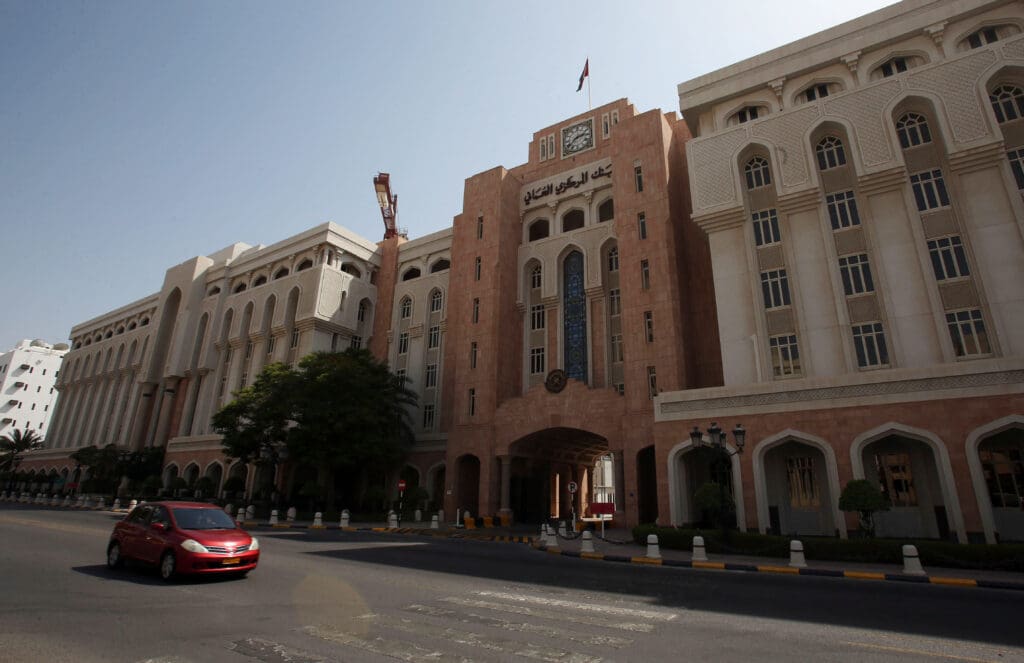In June 2025, Oman took a step that no Gulf monarchy had attempted before: announcing plans for direct taxation starting in 2028. At 5 percent on earnings above 42,000 OMR (~$109,000)—roughly the top 1 percent of earners—the financial returns will be modest. The signal, however, is not. By introducing a narrowly targeted personal income tax (PIT) on high earners, Oman is asking a political question with a fiscal instrument.
For decades, Gulf monarchies paired oil-funded welfare with minimal direct taxation, a model that dampened pressure for political representation while underwriting generous services. Oman’s move affects take-home pay, even if only slightly. The wager is that a narrow, high-threshold levy can evolve the state-citizen bargain toward reciprocity—more transparency and accountability in exchange for a limited contribution—without triggering backlash.
Two distinctions matter up front. First, personal income tax is not the same as value-added tax (VAT), which has become widespread in the Gulf since 2018. VAT is collected at the checkout and diffuses the sense of who pays. PIT, by contrast, hits paychecks directly; it is visible, personal and, therefore, politically elastic. Second, a symbolic first step is not a cash-grab. With a threshold set far above typical wages and carve-outs expected for basic deductions, the immediate revenue impact is expected to be small. The political-economy impact could be large.
Why now
Muscat’s taxation gamble has context: The 2014–16 oil glut and subsequent price crash exposed regional economic vulnerabilities. Oman relies on oil and gas for 68-85 percent of state revenue—and is no exception. When the Covid-19 pandemic struck in 2020 and hit energy prices again, the deficit accounted for approximately 19 percent of the gross domestic product (GDP), and public debt was estimated at nearly 68 percent of GDP. These combined shocks led the government to implement subsidy cuts, austerity measures and a 5 percent VAT in April 2021.
Leading international financial institutions, notably the International Monetary Fund (IMF), urged revenue diversification as these pressures increasingly exposed the fragility of the rent-based system. Oman’s 2020 Medium‑Term Fiscal Plan set non‑oil receipts at 28 percent of total revenue in 2020 and aimed to raise this to 35 percent by 2021. The personal income tax supports efforts to diversify public finances and buffers future shocks. As modest as the tax increase is, it establishes direct taxation mechanisms and provides future fiscal flexibility without requiring new legislation.
Oman designed the tax with intent. The high threshold—far above typical private-sector pay—targets only top earners and should limit backlash. Deductions for education, healthcare, housing, inheritance, charity and zakat ease its effect. Nevertheless, the change carries inherent risks.
Implementation challenges and risks
Announcing a tax is one thing; implementing it is another, especially in a region unfamiliar with direct taxation. Oman’s Tax Authority now has under three years to build the systems to manage personal income tax filings and collections, an unprecedented administrative task. If the framework appears opaque or unfair, trust could erode quickly.
Additionally, defining taxable income clearly and fairly is a complex task because cross-border pay packages often include allowances. Officials aim to finalize detailed regulations by June 2026, while the Tax Authority integrates core data systems. Integrating those systems is the most complex hurdle. Industry guidance recommends that employers review their payroll systems for withholding and reporting well before 2028.
Above all, for decades, the Gulf region has been renowned for offering tax-free incomes to citizens and residents alike. The introduction of the personal income tax also carries implications for the sultanate’s efforts to attract and retain talent. Oman may struggle to match its tax-free neighbors in recruiting skilled expatriates and international businesses, according to Global Finance. Personal taxation also shifts the state-citizen relationship and may alter perceptions of government legitimacy. Historical experience suggests that taxpayers tend to demand greater transparency and a larger public role in overseeing state revenues and expenditures. This cultural change may be the greatest long-term challenge. The government must be transparent and demonstrate both the public benefits of taxation and its proper stewardship of the taxed income it collects, or risk undermining its legitimacy and creating wider dissatisfaction.
Regional implications and broader significance
Like Oman, Saudi Arabia, the UAE and Bahrain already use indirect taxes such as VAT and excise, but PIT is a different political proposition because it reduces earnings and raises expectations of accountability. Kuwait and Bahrain, both facing fiscal pressures, will closely watch Oman.
Kuwait’s parliament has long resisted even modest fiscal reforms, while fiscally stressed Bahrain may see Oman’s approach as a model. Qatar and the UAE, cushioned by surpluses, can afford to wait. Saudi Arabia raised VAT to 15 percent in 2020, and its officials say there are no plans for a personal income tax. Nevertheless, Oman’s success or failure in smoothly implementing the tax will undeniably influence future regional policies. Across the Gulf, ministries will watch administrative performance—disputes, refunds and non-resident rules—more than headline rates.
The implications extend beyond revenue collection. The Gulf rentier model traditionally insulated monarchies from political pressure by disconnecting welfare from direct personal contributions. By taxing income, the state implicitly recasts the bargain. As that perception takes hold, contributors may view themselves as stakeholders with a right to demand transparent accounts and accountable delivery from public bodies.
Thus, while initially limited in scope, Oman’s decree represents a potential watershed moment. A clean rollout could shift norms and put personal income tax back on Gulf agendas. A poor one would stiffen resistance, slow reform and prolong reliance on volatile oil revenue.
This is an experiment: a small rate, a high threshold, a long runway—an attempt to evolve, not dissolve, the bargain. The test is whether direct taxation can align with public trust and accountability—first in Oman, then across the Gulf. If Muscat collects cleanly and communicates credibly, a tiny levy can become a regional template.


